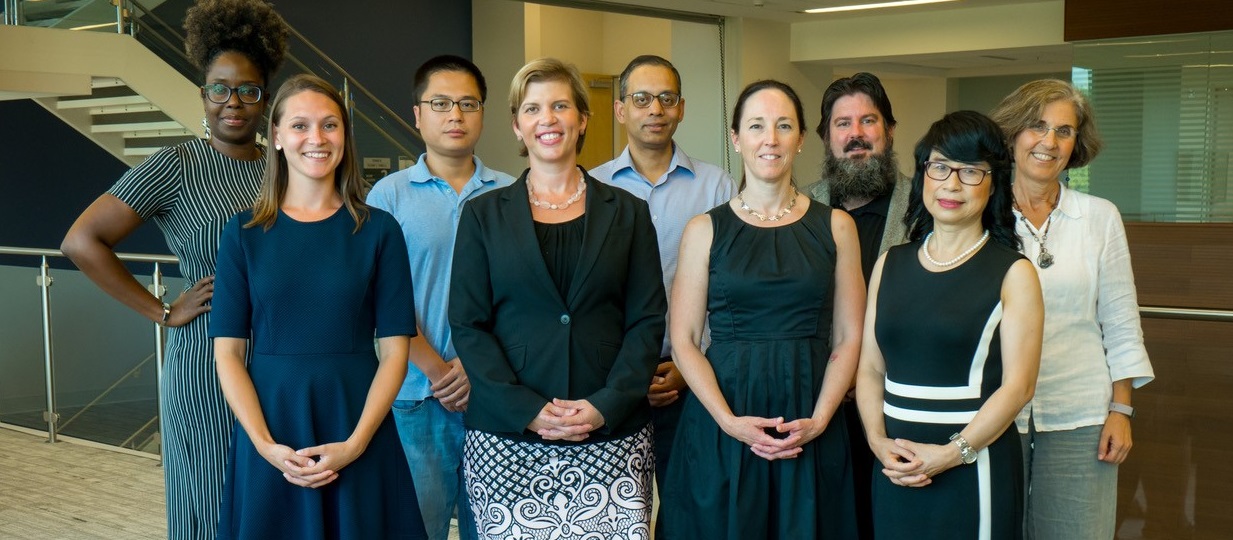Three Million Dollar Grant Trains Students on Climate Resiliency

Front row (left to right): Lindsay Maudlin; Karen McNeal; Michelle Worosz; and Susan Pan; Back Row (left to right): Kimberly Mulligan-Guy; Di Tian; Puneet Srivastava; Christopher Burton; and Nedret Billor (Missing - Chandana Mitra).
Climate change impacts the world.
An interdisciplinary team of researchers from Auburn University received a highly competitive $3 million National Science Foundation Research Traineeship (NRT) grant to train the next generation of scientists and leaders to conduct cutting-edge interdisciplinary and applied research, develop effective communication skills, and prepare them for the workforce.
“This grant from the National Science Foundation Division of Graduate Education (EHR/DGE) is the first NRT-award for Auburn University and the first in the state of Alabama that will train students to make a sustainable, lasting impact increasing the climate resiliency in the southeastern United States,” explained Dr. Karen McNeal from the Department of Geosciences and the primary investigator of this award.
Nine faculty and senior administration will work with approximately 85 graduate students including 18 fully-funded trainees creating a robust Auburn interdisciplinary team from the College of Sciences and Mathematics’ Department of Geosciences, Department of Mathematics and Statistics, and Office of Inclusion, Equity and Diversity; College of Agriculture’s Crop, Soil and Environmental Sciences; Biosystems Engineering; and Agricultural Economics and Rural Sociology; and the School of Forestry and Wildlife Sciences.
“Over the next five years, this team will work to reform graduate education providing students with an opportunity to better understand, communicate, and predict climate resiliency,” Dr. McNeal added.
Students will examine both natural systems and man-made infrastructure.
“Understanding the vulnerability, resiliency and recovery time is crucial as we continue to face more devastating and frequent natural disasters,” Dr. McNeal said.
Activities in this program include rigorous coursework, science communication training, internships with stakeholders in our geographic area, and workshops structured on the decision-making process.
Additionally, faculty from regional Historically Black Colleges and Universities (HBCU) will provide further research support and training opportunities for these students throughout the duration of the award.
“The graduate students will be analyzing and reviewing real-world applications during their internships,” Dr. McNeal shared. “They will work with local and regional stakeholders including organizations and companies that will be directly impacted by climate change.”
The Department of Geosciences where Dr. McNeal teaches and conducts research offers a new, in-depth Ph.D. program that also helps students learn about factors related to climate change.
“Students in the Department of Geosciences Earth Science Systems Doctoral Program have an unparalleled opportunity to learn about the environment and conduct research that can help find solutions to climate-based problems,” said Department of Geosciences Chair Dr. Ming-Kuo Lee.
The grant-funded program begins in September 2019 and runs through 2024.
Latest Headlines
-
02/12/2025
-
02/11/2025
-
02/10/2025
-
01/30/2025
-
12/03/2024
